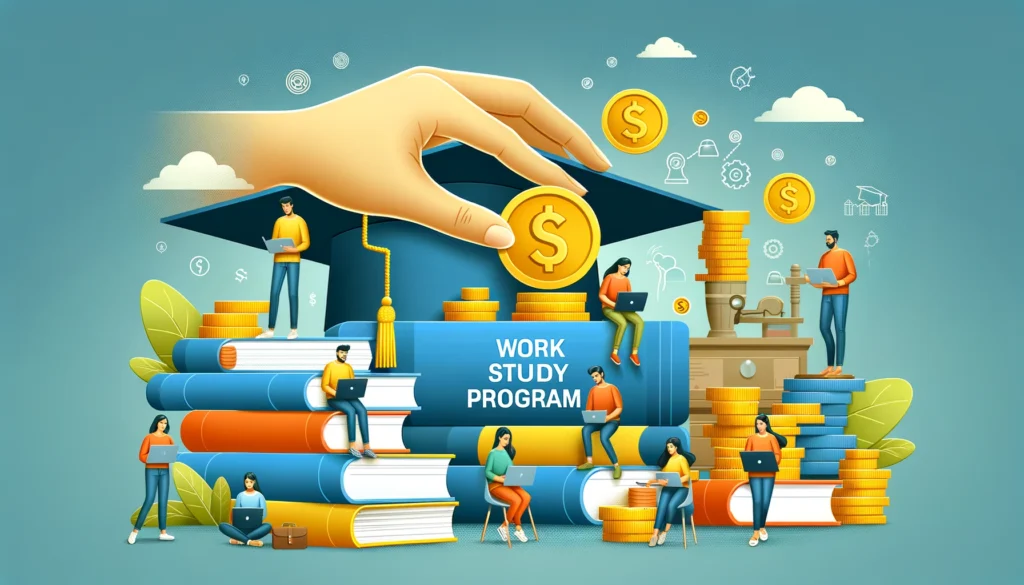
It’s no secret that pursuing higher education in technical fields can be financially demanding, especially for international students. In this blog post, we probe into the effectiveness of work-study programs in alleviating the burden of student loans for international students at technical institutes. By analyzing the benefits and challenges of work-study programs, we aim to provide valuable insights for students navigating the complex landscape of financing their education.
Key Takeaways:
- Work-Study Programs: Work-study programs can be effective in helping international students offset the cost of student loans at technical institutes.
- Financial Support: These programs provide financial support to students through part-time work opportunities, allowing them to earn money while gaining valuable work experience.
- Reducing Debt: By participating in work-study programs, international students can reduce the amount of student loans they need to take out, ultimately lowering their post-graduation debt burden.
- Skill Development: Work-study programs also offer international students the chance to develop practical skills related to their field of study, enhancing their employability upon graduation.
- Global Perspective: Engaging in part-time work through these programs can also provide international students with a deeper understanding of the local workforce and culture, enriching their overall educational experience.
The Financial Burden of International Students
While pursuing technical education abroad can be a rewarding experience, it comes with a significant financial burden for international students. Tuition fees and living expenses can quickly add up, leading many students to seek alternative funding options such as work-study programs and student loans.
Tuition Fees and Living Expenses
Expenses for international students at technical institutes often include steep tuition fees along with the cost of living in a foreign country. These costs can be challenging to manage, especially for students who may not have access to financial aid or scholarships.
The Role of Student Loans
On top of tuition fees and living expenses, international students often rely on student loans to cover the remaining costs of their education. These loans can help offset the financial burden but also come with the responsibility of repayment after graduation.
The availability of student loans for international students can vary depending on the country and institution they are attending. In some cases, students may need a co-signer or a good credit history to secure a loan, adding another layer of complexity to the already stressful process of financing their education.
Work-Study Programs: A Potential Solution
Some international students at technical institutes face the challenge of high tuition fees and living expenses, which often lead to reliance on student loans. Work-study programs present a potential solution to offsetting these costs by providing students with opportunities to work part-time while pursuing their studies. This not only helps students financially but also provides valuable work experience in their field of study.
How Work-Study Programs Offset Costs
An effective work-study program allows students to earn money to cover a portion of their expenses while gaining practical skills that can enhance their academic learning. By working part-time in positions related to their field of study, students can apply classroom knowledge to real-world situations, making their education more comprehensive and valuable.

Types of Work-Study Programs Available
Costs of attending technical institutes can vary depending on the location, program, and duration of study. Some common types of work-study programs available to international students include on-campus jobs, internships, co-op programs, and research assistant positions. These programs offer students flexibility in balancing work and study commitments while gaining hands-on experience in their chosen field. Though each program has its requirements and benefits, they all aim to support students in offsetting their educational expenses.
| On-Campus Jobs | Internships |
| Co-op Programs | Research Assistant Positions |
With the rising costs of higher education, work-study programs have become a crucial aspect of financial planning for many international students. By participating in these programs, students not only have the opportunity to earn money but also develop necessary skills and expand their professional network. This hands-on experience can give them a competitive edge in their future career endeavors.
Effectiveness of Work-Study Programs
Reducing Financial Stress
Once again, work-study programs prove their effectiveness in reducing financial stress for international students at technical institutes. By providing an opportunity to earn money while studying, these programs help students cover a portion of their expenses, including tuition, accommodation, and daily living costs. This financial support can significantly reduce the burden of student loans and alleviate the anxiety associated with mounting debt.
Gaining Practical Experience
Financial gains aside, work-study programs offer international students at technical institutes the valuable opportunity to gain practical experience in their field of study. This hands-on experience not only enhances their academic learning but also equips them with imperative skills and knowledge that can boost their employability upon graduation. The chance to apply theoretical knowledge in real-world settings through work-study programs can be a game-changer for students seeking to secure lucrative job opportunities in the future.
Plus, engaging in work-study programs allows international students to build a professional network and establish connections within their industry. These connections can open doors to future career prospects, internships, or even job offers, providing students with a head start in the competitive job market.
Challenges and Limitations
Visa Restrictions and Work Hour Limits
Challenges arise for international students participating in work-study programs at technical institutes due to visa restrictions and work hour limits. International students often have specific visa requirements that restrict the number of hours they can work during the academic year. This limitation can impact their ability to earn enough to offset the high costs of tuition and living expenses, leading to financial strain.
Balancing Work and Academic Responsibilities
Any international student enrolled in a technical institute faces the challenge of balancing work and academic responsibilities. Juggling a work-study program alongside demanding technical coursework can be overwhelming, potentially affecting a student’s academic performance. Striking a balance between gaining work experience and excelling academically requires strong time management skills and prioritization.
Plus, managing expectations and ensuring that work commitments do not compromise the quality of education is crucial for international students in technical institutes. Finding the right balance between work-study responsibilities and academic requirements is important for their overall success and well-being.
Final Words
To wrap up, work-study programs can be an effective way for international students at technical institutes to offset the cost of student loans. By gaining valuable work experience while studying, students not only earn money to help pay for their education but also develop skills that can enhance their future career prospects. However, it is important for students to carefully balance their work and study responsibilities to ensure they are still able to excel academically.
Overall, work-study programs present a valuable opportunity for international students to manage the financial burden of obtaining a technical education. By taking advantage of these programs, students can broaden their skillset, reduce their reliance on student loans, and position themselves for success in their chosen field.
FAQ
Q: What is a work-study program?
A: A work-study program is a type of financial aid that allows students to work part-time while studying to help offset the cost of their education.
Q: How effective is a work-study program in offsetting the cost of student loans for international students at technical institutes?
A: Work-study programs can be effective for international students at technical institutes in reducing the need for student loans by providing the opportunity to earn money through part-time work.
Q: What are the benefits of participating in a work-study program?
A: Participating in a work-study program can help students gain valuable work experience, reduce their reliance on student loans, and potentially lead to full-time job opportunities after graduation.
Q: Are work-study programs available for all students at technical institutes?
A: Work-study programs are typically available for both domestic and international students who demonstrate financial need, making them accessible to a wide range of students at technical institutes.
Q: How can international students at technical institutes apply for a work-study program?
A: International students at technical institutes can apply for a work-study program through their school’s financial aid office, which can provide information on eligibility requirements and available job opportunities on campus.



